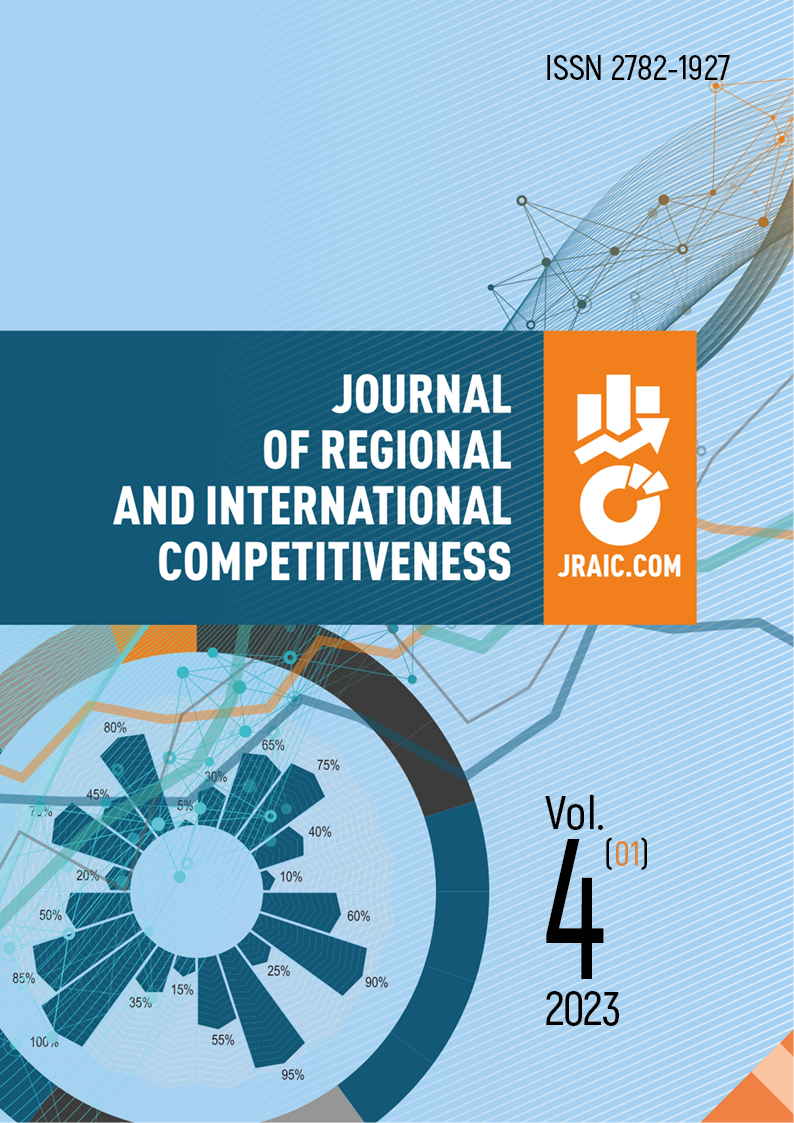Rome, Italy
from 01.01.2015 until now
Yaroslavl, Yaroslavl, Russian Federation
The article analyses the evolution of the «economic man» in terms of the formation and development of the industrial economic system. According to our hypothesis, as the system that demanded an «economic man» transforms into some other system, the «economic man» himself must also transform into a new being; otherwise, his competitiveness will either be undermined or lost. There are three stages of this transformation: individual, national and, supranational. The author observed the transition from the complete rationality of the «economic man», guided by a purely market equilibrium, to the pseudo-market (social) equilibrium of the «socio-economic man». It is absolutely reconciled with the principle of partial optimization (satisfaction). Note, that the effectiveness is the criterion of its sustainability. As a result, it allows us to conclude the ability of the «economic man» to maintain competitiveness in the XXI century, but only through his transformation from full rationality to limited one, from purely economic to socio-economic-ecological one. Also we made a forecast concerning with the increase in the rationality of non-economic goals of cooperation, mutual benefit, the coupling of knowledge and technology to spiritual, moral, cultural and ethical principles and norms. All mentioned actualizes M.I. Tugan-Baranovsky’s prediction on the fate of political economy, made more than a hundred years ago.
COMPETITIVENESS, "ECONOMIC MAN", RATIONALITY, EFFICIENCY, THE PRINCIPLE OF FULL OPTIMIZATION, THE PRINCIPLE OF LIMITED (PARTIAL) OPTIMIZATION, MARKET EQUILIBRIUM, PSEUDO-MARKET EQUILIBRIUM, STABILITY OF THE ECONOMIC SYSTEM
1. Smith, A. (2016). A study on the nature and causes of the wealth of nations. (P.N. Klyukina, Trans.). Moscow: Eksmo (in Russian).
2. Smith, A. (1976). The Theory of Moral Sentiments. Indianapolis: Liberty Fund.
3. Marshall, A. (1993). Principles of Economic science. J. M. Keynes (Ed.). (Vols. 1-3). Moscow: Progress (in Russian).
4. Keynes, J. M. (2007). General theory of employment, interest and money. N.A. Makasheva (Ed.). Moscow: Eksmo (in Russian).
5. Say, J.-B. (2000). A treatise on political economy. M. K. Bunkin, A. M. Semenova (Eds.). Moscow: Akad. nar. khoz-va pri pravitelstve rossiyskoy federatsii. Federatsiya: Delo (in Russian).
6. Rodina, G. A. (2012). The structure of theoretical economics: evolution of views. Teoreticheskaya ekonomika, (5), 26-36. Retrieved from www.theoreticaleconomy.info (in Russian).
7. Pigou, A. (1985). The Economic Theory of Welfare. (G. Khromushin, Trans.). Moscow: Progress (in Russian).
8. Coase, R. (2007). Firm, market and law (R. Kapelyushnikov, Trans.). Moscow: Novyy izdatelskiy dom (in Russian).
9. Coase, R. (1960). The Problem of Social Cost. Journal of Law and Economics, (3), 1–44.
10. Kapelyushnikov, R. I. (2017). The status of the principle of rationality in economic theory: past and present. NEA Journal, (1), 162-166.
11. Auzan, A. (2017). The economy of everything. How institutions define our lives.(4d ed.). Moscow: Mann, Ivanov i Ferber (in Russian).
12. Tumin, V. M., Nazarova, I. A., & Tumin, V. V. (2019). Institutional Economics. Moscow: Infra-M (in Russian).
13. Tolkachev, S. A. (2022). On the removal of contradictions and the transformation of capitalism in the era of the Fourth Industrial Revolution (capital without capitalism or capitalism without capital). Voprosy politicheskoy ekonomii, (3), 85-103 (in Russian).
14. Glazyev, S. Yu. (2022). Noonomics as a management paradigm of the new world economic order. Noonomika i nooobshchestvo. Almanakh rabot nauchno-issledovatelskogo instituta imeni S.Yu. Vitte, (3), 48-58 (in Russian).
15. Kolganov, A. I. (2022). Fundamental civilizational shifts from the point of view of the method of political economy. Noonomika i nooobshchestvo. Almanakh rabot nauchno-issledovatelskogo instituta imeni S.Yu. Vitte, (3), 93-105 (in Russian).
16. Tugan-Baranovsky, M. I. (1917). Fundamentals of political economy. (4d ed.). Petrograd: Pravo (in Russian).
17. Rodina, G. A. (2019). Political economy today: did M.I. Tugan-Baranovsky’s prophecy come true? Marx and modernity: A Political and Economic Analysis of Social Systems Management. M.L. Alpidovskaya, E.G. Popkova (Eds.). North Carolina: Information Age Publishing. Inc.
18. Mises, L. (2005). Human activity. A treatise on economic theory. (V. Kuryaeva Trans). (3d ed.). Chelyabinsk: Sotsium (in Russian).




















